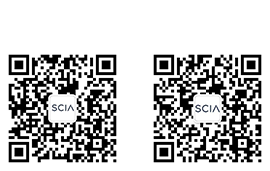
中国和欧洲的仲裁机构之比较:文化相似与差异 ——中欧争议解决研讨会实录(七)
发布时间:2016-09-30 10:47:15
编者按:2016年6月18日,由深圳国际仲裁院(又名“华南国际经济贸易仲裁委员会”,英文简称“SCIA”)和瑞士仲裁协会(英文简称“ASA”)共同主办的“中欧争议解决研讨会暨中欧国际仲裁合作签约仪式”在深圳前海举行。SCIA与ASA等机构签署了合作协议,将加强多元化争议解决机制的创新和交流。活动还得到深圳市律协、瑞士驻广州总领事馆、中国欧盟商会、瑞士商会仲裁院(英文简称“SCAI”)等机构的大力支持。来自瑞士、法国、德国、英国、加拿大、美国、中国香港和中国内地的境内外专家和专业人士共200余人参加了本次活动并对中欧国际仲裁相关问题进行了深入探讨。本微信公众号将陆续推出研讨会的英文实录稿。
THE CULTURAL SIMILARITIES AND DIFFERENCES BETWEEN CHINESE AND EUROPEAN DISPUTE RESOLUTION INSTITUTIONS:
THE TRANSCRIPTIONS OF SINO-EUROPEAN DISPUTE RESOLUTION
SEMINAR(VII)
中国和欧洲的仲裁机构之比较:文化相似与差异
——中欧争议解决研讨会实录(七)
11.The Speech by Mr. Wu Wei, Partner at Boss & Young, Shanghai
.jpg)
Honourable President Mr. Liu Xiaochun, and honourable distinguished guests, ladies and gentlemen: good morning!
It's my honur to have a chance to give a presentation here. I am one of the China ASA members as well as a member of the Court of Arbitration for Sport. So from my point of view today, for purpose as a Chinese practice lawyer, what are my feelings about the Swiss arbitration? I think previous speakers have made lots of introductions about the comparative situations for both arbitration institutions of Switzerland and China, and the quick development by China. So I would not go through all the details, but just share some part which is my experience.
So I think everybody knew this, Mr. Liu did a great presentation on that, the development of Shenzhen and SCIA, quite new development, and everybody, I think, knows this. Let's a little bit talk, because I know the speaker from Beijing already made a presentation on this, most of the international arbitration institutions set up their office, tried to set up an office in China, and as Court of Arbitration for Sport goes back to 2012, it set up ahearing centre in Shanghai. It's a hearing centre in Shanghai with the seat of arbitration being Swiss, in the purpose of -- in case of any hearing in relation with Asia-Pacific which the parties feel comfortable to go to Shanghai instead of very far to Lausanne, so they come to Shanghai. So for the hearing centre, they have been set up in 2012 in Shanghai. We have around eight cases already, including a case in relation with disputes or dispute in China, andalso cases in relation with Asia, North Asia and South Asia. And definitely it's still very interesting that the hearing centre itself is mainly driven and organised, supported by Shanghai Municipal Government, with the agreement signed by Shanghai Sport Department with the Court of Arbitration for Sport in Lausanne several years before. And developing, for commercial arbitration, if it could be stepped up from representative office, it's still a very interesting future trend.
I think we have our distinguished president already making a presentation about ASA. From my point of view, mainly I think I would like to point from my experience mainly in sports arbitration as an arbitrator being appointed by different country parties, sometimes appointed by Chinese parties, and my experience in the hearing, in the case, in the award, would try to give you some flavour. What is that difference in the Chinese court or in the Chinese arbitration institution?
So in terms of, first of all, we're talking the system. So China is civil law system. Actually, Swiss law is also civil law system. So generally, we are quite similar in the law system itself. In the civil law system, the court, the judge is very dominant, they are very dominant directly to the parties, and sometimes they have more power in the process itself. I think in ageneral way, I would like to say the Swiss arbitration, from the point of view of the Court of Sports Arbitration but I think in a general way, in commercial arbitration, arbitrators are quite similar in their role.
Secondly, for the place of arbitration, although the seat of arbitration is always Swiss, the place of arbitration is quite flexible. For ASA, I would like to say, it seems development in Asia is still possible, for an arbitration place in the future, in China or even in Shenzhen. It depends on the agreement by the parties. So for the sports arbitration, I'd like to give an example that in the Court of Arbitration for Sport, it had several alternative hearing centres spread throughout the world -- in Shanghai; in Kuala Lumpur, Malaysia; in the Middle East, and even in Egypt; and also we have a decentralised office in America, New York; and in Sydney, Australia. So the idea is to service the parties as conveniently as possible, so the location is very important. So I think in terms of the Chinese companies involved into the international investment, definitely parties will feel comfortable if the place ofarbitration will be close or similar in Asia. They will feel more comfortable. That is also the convenience for Swiss arbitration.
Secondly, in the mediation itself -- I'll give you an example. In China, in the court system, it's very encouraged for mediation. The judge usually in the court, in the hearing itself, during the hearing, would like to say, "Hey, why not the parties consider to have a chance of mediation or have a chance of settlement?" The president announced that SCIA has great numbers,especially in a big case, for settlement or mediation. So my feelings from Swiss mediation, especially from Court of Arbitration for Sport, it's quite similar, but the seat is slightly different.
Mediation, usually in China, first of all in mediation, there's no special mediator list. But in the Court of Arbitration for Sport, they have a special mediator list. Secondly, the procedure usually in the hearing of the court or commercial arbitration,the arbitrator will suggest mediation, either in the same time or after, other time. But in Swiss, especially in the sports arbitration, the mediator will suggest a special time and a special appointment by parties, by agreement, aspecial procedure. So in case the settlement is not successful, it's deemed to restart the procedure of arbitration again. So I think also from a Chinese perspective, mediation is quite common and still possible in Swiss arbitration.
So in terms of language, for Swiss, we have mentioned already four languages provided. In the sports arbitration, mainly for English and the official language is also French. Definitely as international arbitration, there are different dialects and languages being provided in the hearing with interpreter services, withvideo conference, with also all other facilities, and in terms of ASA or Swiss arbitration possibly developing in China, still, there's great possibility for the language provided in Chinese, with certain circumstances, which will be convenient to the Chinese parties. I will not go into details since it's been presented already. I would like to talk about a little point on the emergency procedure. The emergency procedure from Shanghai Free Trade Zone, they have the new version last year, article 21, and there's a procedure for this emergency with a special timing and appointment. And with CIETAC Rules 2015 also, there's quite a similar clause, different date, and with this emergency procedure.
With SHIAC Rules, Shanghai, you will see slightly different requirements, but they still have such kind of stipulation. And with Swiss Chamber Arbitration Institution, these clauses, 43.2 clauses, include such kind of special procedure. Also, when the tribunal is constituted and first shall be transmitted to the arbitral tribunal, to the new arbitration tribunal, so this is -- and also in Swiss arbitration, if after a certain period, like 10 days, this period, if still not providing all other submitted documentation or other required documentation, it still could be extended or specially applied for extension.
In terms of the developing of China arbitration institution, is globalisation, especially from the presentation of the president, Mr. Liu, here, from the point of view from SCIA, you see that numbers of arbitrators from internationally are 40%, and that's also developing from other parts of China. Also the rules themselves have been updated and learning from different parts of international institutions, and the efficiency, independence and impartiality is very, very careful in all the process. Just a small point of view of conflict of interest which is linked with the independence of arbitrators and impartiality. As one more involvement for international arbitration, so it must be a very interesting question, because in terms ofdifferent nationality of arbitrators, so whether Chinese companies have more variety to choose arbitrators, with nationality of Chinese or nationality with Swiss or nationality from other countries, so the conflict of interest is moreand more chances. So from the perspective or point of view of Chinese arbitration law or the arbitration behaviour, relations, or, you know, lawyers' point of view, there are some regulations on this. Also, in terms of the council and arbitrators, the model,for example, in the Court of Arbitration for Sport, any arbitrator in the list could not act as counsel for any case, even without any conflict of interest, in any cases in CAS, which is similar in Beijing arbitration institution. But with Swiss commercial arbitration, it is not as strict, because commercial arbitration has more wide scope. But with respect of the conflict of interest, the principle of conflict of interest, avoid them, from IBA Rules, ICC Rules themselves still have very detailed stipulation on that. But definitely with the consideration of IBA Rules or other country rules, it is a soft law. It's not that mandatory. But case-by-case basis, it will be also considered.
So I will not go through all the details, green list or red list or orange list, but as more and more cases for Chinese company involvement, definitely lots of challenges for the independence and impartiality for the arbitrators still to be involved. So where, for example, yesterday we did a workshop of the presentation and in Shanghai, Shanghai lawyers asked interesting questions about, "Oh, can we – where a Chinese case, one or more involved, can we appoint a Chinese arbitrator? What is the benefit to appoint a Chinese arbitrator? Or can we appoint a Swissarbitrator? What is the benefit for that?" First of all, we are talking cultural similarity. The cultural similarity, from one point of view, if you're from the same nationality, the cultural -- you can understand each other better. But from another point of view, as arbitration culture, it doesn't mean that you're from the same country and you understand very well different rules internationally. But also, even from the same nationality, the arbitrators need to be very careful being appointed as arbitrators from the same country to still keep their independence and impartiality. And also, in terms of laws from Switzerland and -- for example, for sports arbitration, the parties definitely can agree on a contract with a third-partycountry law with the presentation of arbitrator from such country as expert, but some part which is not stipulated in these clauses or it’s not covered by such governing law country, but usually because the federation of this international body is based in Switzerland, so the Swiss lawyer would usually be recommended for lots of special integration. So all of these elements should be included in the consideration of selection of arbitrators, and definitely you have a right to reserve in case of discomfort for any arbitrators. That's ageneral presentation from myself, and I would like to have more communication with you, questions and answers, in the break.
Thank you.




